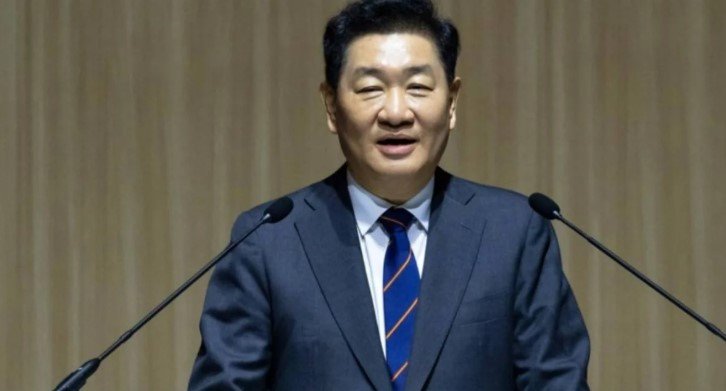Samsung Electronics is mourning the sudden loss of its co-CEO Han Jong-hee, who passed away on Tuesday at the age of 63 after suffering cardiac arrest. Han, a pivotal force behind Samsung’s rise to global dominance in consumer electronics, leaves behind a legacy defined by bold innovation and transformative leadership.
A Life Dedicated to Samsung’s Rise
Han Jong-hee wasn’t just an executive — he was a cornerstone of Samsung’s evolution. Joining the company over three decades ago, Han started his career in the displays division, a segment that would later define Samsung’s reputation as a technology powerhouse. Over the years, he climbed the corporate ladder, ultimately earning the co-CEO title in 2021.
His appointment marked a strategic pivot for Samsung. Han spearheaded the consumer electronics and mobile devices division, overseeing everything from smartphones to home appliances. Under his watch, Samsung maintained its stronghold as the world’s leading TV manufacturer, toppling Japanese titans like Sony Group Corp.

Leading Through Technological Shifts
Han wasn’t one to rest on past successes. He guided Samsung through seismic shifts in technology and consumer behavior. From the rise of smartphones to the proliferation of smart home devices, Han kept Samsung not only competitive but dominant.
One of his most celebrated achievements was pushing AI integration across Samsung’s product lineup. He envisioned — and implemented — a future where AI wasn’t just a feature but an essential, embedded part of everyday life. Samsung’s refrigerators, washing machines, and even vacuum cleaners started coming equipped with AI chips under Han’s leadership, setting the company apart from traditional appliance makers.
- Pioneered AI integration into household appliances
- Strengthened Samsung’s position against Apple in the smartphone market
- Expanded Samsung’s market share in TVs, outpacing legacy Japanese brands
What Comes Next for Samsung?
Han’s unexpected death leaves a significant leadership gap at one of the world’s most influential tech companies. Co-CEO Jun Young-hyun remains at the helm of Samsung’s semiconductor business, a vital arm of the company that fuels its broader technology ecosystem.
For now, Samsung has not announced a successor for Han’s role. The timing couldn’t be more critical — the company faces mounting competition from Chinese manufacturers, ongoing global chip shortages, and a race to dominate the AI-driven smart device market.
Analysts speculate that Samsung may look internally for Han’s replacement, given the company’s history of promoting seasoned executives with deep knowledge of its operations. Still, Han’s unique ability to bridge hardware innovation with user-centric design will be hard to replicate.
A Leader Remembered
In a statement, Samsung described Han as a “visionary leader who helped shape the modern era of consumer electronics.” Colleagues and industry rivals alike have echoed that sentiment, praising his relentless pursuit of innovation without losing sight of practical, everyday utility for consumers.
Han’s legacy extends beyond the products he helped create. He shaped Samsung’s culture, fostering an environment where ambitious ideas could take root and flourish. For those who worked alongside him, Han was more than a CEO — he was a mentor and a driving force behind Samsung’s mission to make technology more intuitive, accessible, and essential.
His sudden departure leaves a void, but his contributions will continue to define Samsung — and the tech industry — for years to come.
